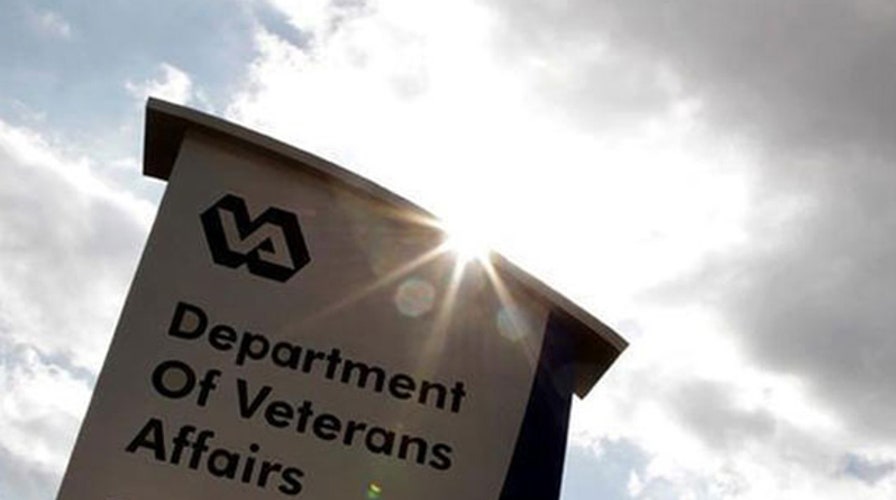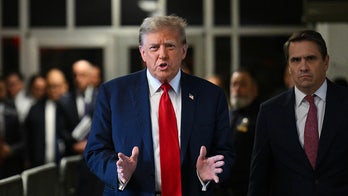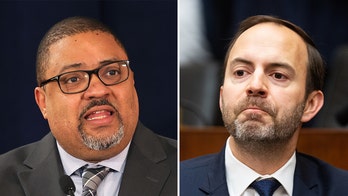White House spokesman Jay Carney, pressed by reporters for reaction from President Obama to the burgeoning VA scandal, said his boss is "mad as hell" -- but as Memorial Day approaches, the questions about his public silence are getting louder, even as fresh allegations surface about VA workers "gaming" the system at the expense of veterans' care.
The president has said little about the controversy since reports surfaced a month ago about patients dying while waiting for care at a Phoenix VA facility. He dispatched his chief of staff, Denis McDonough, to discuss the issue on a Sunday show this past weekend -- the most in-depth comments so far came from embattled VA Secretary Eric Shinseki during his congressional testimony last week.
Carney said Tuesday that White House Deputy Chief of Staff Rob Nabors, who is assisting in an internal review, is visiting the Phoenix center as part of that process. Asked if the president would comment soon, Carney said he had no update on Obama's schedule.
A day earlier, Carney was pressed on why Obama has not addressed the public. Carney suggested an address of some kind is being planned but did not elaborate.
"I'm sure you'll hear from him at some point on this issue soon," Carney said.
Since the allegations in Phoenix surfaced, new reports have emerged almost daily about inappropriate scheduling practices at other facilities, delayed care or warning signs that were missed years ago.
The American Legion on Tuesday circulated an April 2010 memo, written by a deputy under secretary for health, that addressed some of these warnings. The memo flagged a host of tactics that were used to misrepresent when and how VA patients were being seen.
The memo referred to these "inappropriate scheduling practices" as "gaming strategies." It outlined an alarming number of them, mostly designed to make it seem like patients were being seen in a timely fashion even if they were not.
One method described in the memo was for clinics to create and then cancel an appointment, but claim in the official system that the appointment was canceled "by patient." This would show a wait time within 30 days, the target range, even though that was not accurate.
The memo also said that "new or modified gaming strategies may have emerged" since 2008, suggesting this was a problem beforehand.
Indeed, The Washington Times reported Monday on documents showing VA officials warned the Obama-Biden transition team in 2008 that VA centers were reporting inaccurate information about wait times.
The administration so far has rebuffed calls for Shinseki to resign over the burgeoning scandal.
On Monday, Senate Republican Leader Mitch McConnell said Obama needs to devote more attention and presence to this issue.
"It's nice that the president is mad as hell but why didn't he have the kind of attention applied to this he did to the ObamaCare website? Multiple press conferences, multiple communications with the American people," McConnell told Fox News. "Look, this is a huge problem. He needs to step up to the plate. Don't try to blame it on Bush or the Republicans in Congress. He's the CEO of the country. The VA reports to him.
"He ought to have the same kind of interest in this that he did in the ObamaCare website and that ObamaCare law in general. Make it a top priority," McConnell said.
A handful of Phoenix officials have been placed on leave over the problems with that facility, and on Friday the administration announced the resignation of the top VA health official, Robert Petzel.
But Petzel already was slated to retire this year, something the administration had announced last September.
Pressed on how the Petzel departure counts as accountability, Carney repeatedly cited the American Legion's comment that the resignation is a "step toward addressing the leadership problem" at the VA -- though the American Legion also wants Shinseki to step down.
Carney said Obama has "acted," in part by dispatching Nabors to assist in a review.
He suggested the administration only learned about the Phoenix problems when they were reported in the media last month.





